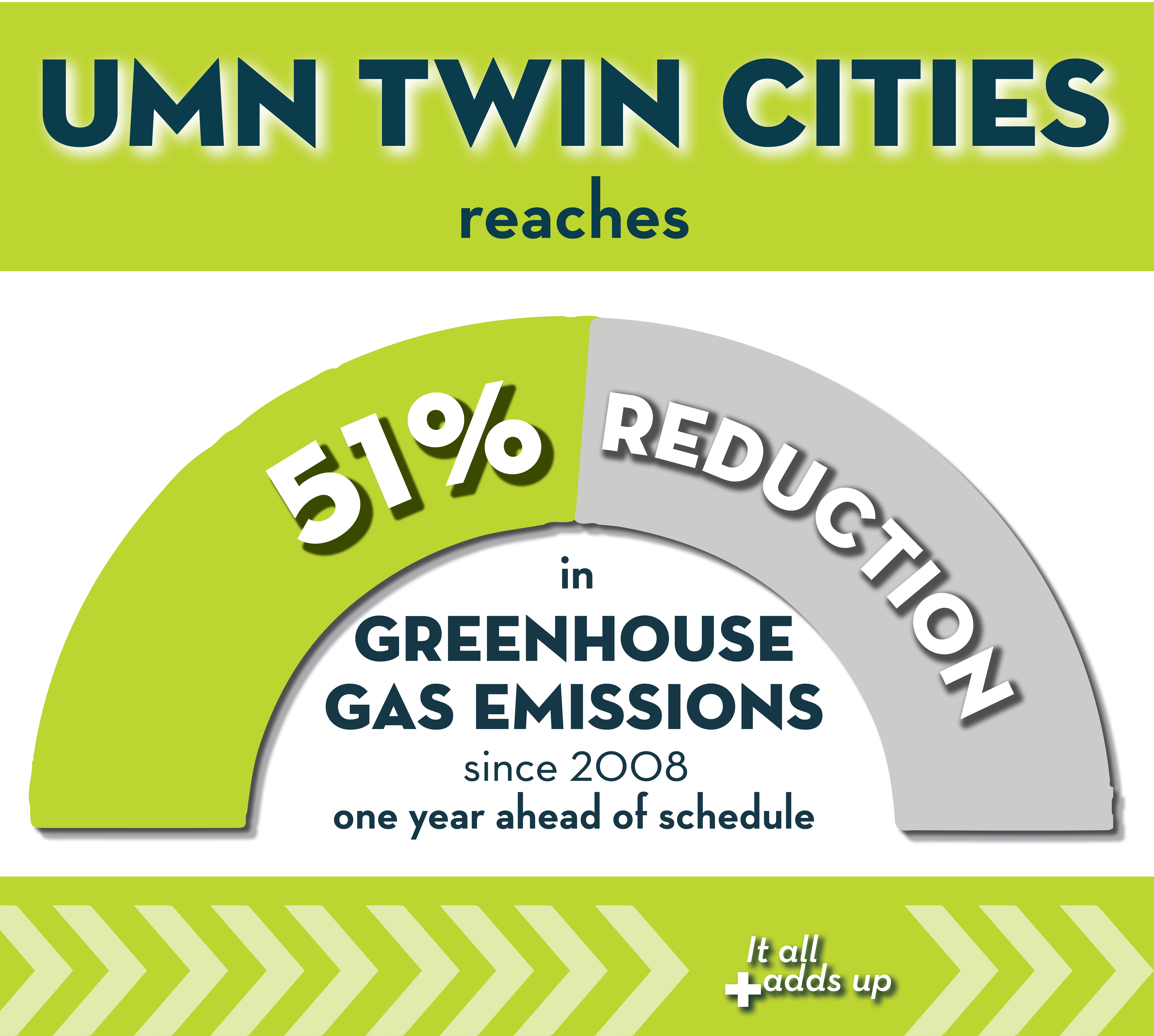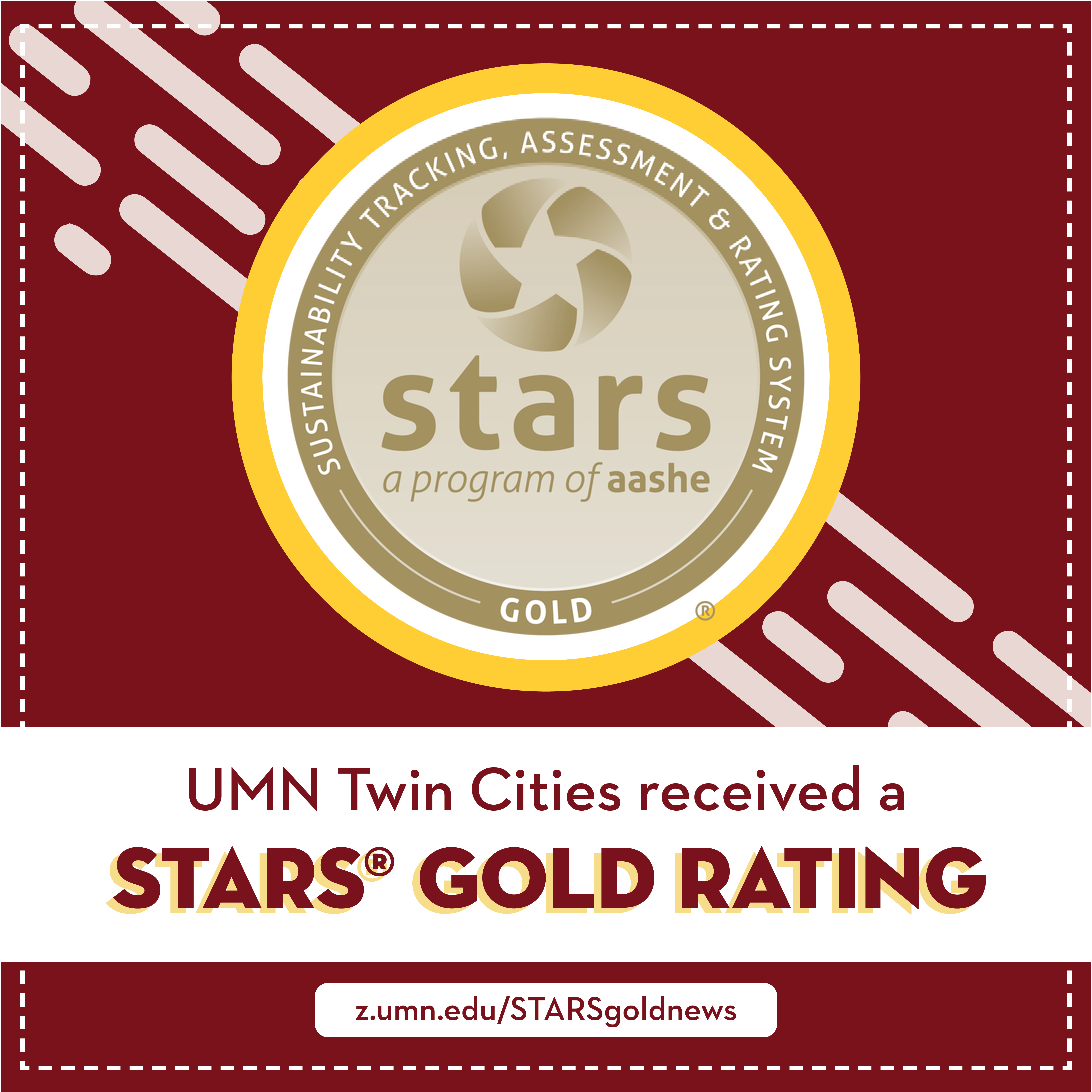
The events of the past year have shown the risks of climate change to our planet, which will only continue unless sweeping change is made. Heat waves, floods, wildfires, and drought have plagued communities across Minnesota, the U.S., and the world. It’s more important than ever to take aggressive action to reduce emissions and make our communities more resilient to the impacts of climate change. The University is leading the way through our operations, research, teaching, and work with communities across the state and the world, and we have committed to actions big and small across campus in an effort to build a fully sustainable future.
The University is leading by example by cutting its greenhouse gas emissions, and we are happy to announce that as of 2020, the Twin Cities campus has reached a 51% reduction in greenhouse gas emissions since 2008. This achievement comes one year ahead of the date for this milestone established in the campus’ 2011 climate action plan. Achieving this goal early would not have been possible without the hard work of staff across the University. "Staff in a variety of departments across the University made reaching this milestone a possibility with their commitment and consistent work to make the University more sustainable," says Bill Paulus, Associate Vice President of Facilities Management. "From Planning, Space, and Real Estate's campus planning efforts to Capital Project Management's B3 implementation to Energy Management's energy conservation program and every individual doing their part, the commitment to the University's path to carbon neutrality is evident across the board."
We’re not stopping here! There’s still plenty of work to be done in order to reduce emissions to zero. To achieve this goal, later this year a Sustainability Committee on the Twin Cities campus will begin developing a new, updated Climate Action Plan for cutting the campus’ remaining emissions. Sign up to stay informed on this process.
In addition to making high-level system changes in our operations, everyone on campus has a role in reducing our emissions here at the U and at home. Here are our top tips to help reduce the University’s footprint!
- How do you commute to and from the University? Transportation is the largest source of greenhouse gas emissions in Minnesota and a significant source for the University. Switch it up and try bicycling or riding public transportation to reduce our collective footprint from commuting.
- Where does your energy come from? Contact your electric utility company to find out about renewable energy options available to you that can help power your home in a more sustainable way.
- If you are able, choose sustainably sourced foods to support local food providers and reduce harm to the environment from fertilizers and chemicals. Eating a plant-forward diet can contribute to lower risk for disease and promote better health and longer lifespans. Resources:
- Be sure to vote and reach out to local public officials to share your thoughts and concerns about greenhouse gas emissions and the climate emergency.
Read about the Advancing Climate Solutions. Now. The Swain Climate Policy Series and find out how to get involved.


